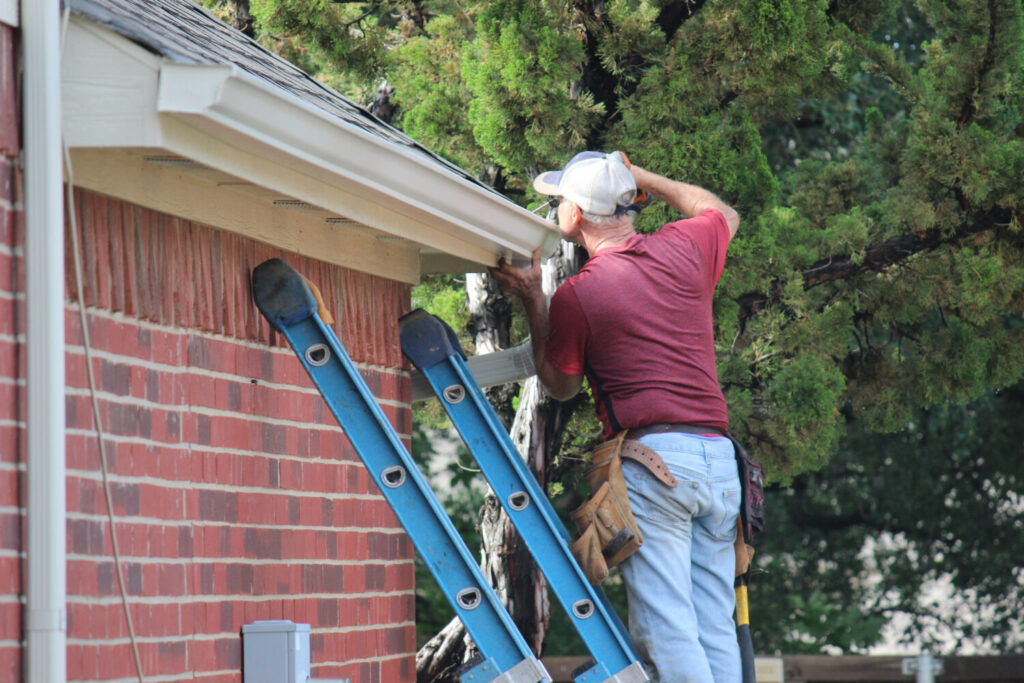
Taking care of your roof is a critical responsibility that every homeowner should prioritize. A well-maintained roof not only safeguards the house from weather damage but also extends its lifespan, saving you time and money in the long run. When you keep a roof in good shape, you’re helping to prevent major issues from forming, which often result in costly repairs. Follow these practical roof maintenance tips to make sure your roof stays in excellent condition for years to come. For expert advice, you can browse around these guys who specialize in roof maintenance and repair.
Regular Inspections
One of the best ways to keep your roof in top shape is by conducting regular inspections. At least twice a year, take the time to inspect your roof for any signs of damage. You should look out for missing or loose shingles, cracks, leaks, or any other visible issues. Catching problems early on can prevent further damage from occurring and save you money down the road.
You should also perform an inspection after a heavy storm or high winds. These weather conditions can cause damage that isn’t immediately apparent. By checking the roof right after these events, you can catch problems before they worsen. If you’re not comfortable doing it yourself, it’s worth hiring a professional to take a look.
Clean Gutters
Cleaning out the gutters is another critical aspect of roof maintenance. Clogged gutters can cause water to back up and spill over onto your roof, leading to leaks and water damage. Make it a point to clean your gutters at least twice a year, particularly during the fall when leaves and other debris tend to build up.
In addition to cleaning the gutters, ensure that the downspouts are clear and draining properly. If water isn’t being directed away from your house, it can pool around the foundation, which can lead to structural problems over time.
Remove Debris From the Roof
Debris such as leaves, branches, and dirt can accumulate on your roof and cause unnecessary strain. Over time, this debris can trap moisture, which may lead to mold growth or rot. Additionally, branches can rub against shingles, causing them to wear down more quickly. Regularly removing debris is an easy way to prevent these problems and keep your roof in good condition.
If you have overhanging trees near your roof, consider trimming them back. This will help reduce the amount of debris that falls onto the roof and minimize the risk of branches causing damage during storms.
Address Moss and Algae Growth
Moss and algae are common issues on roofs, especially in damp or shaded areas. If left unchecked, they can cause damage to the shingles and lead to premature aging of the roof. To prevent moss and algae growth, install zinc or copper strips along the roof’s ridge. When it rains, small amounts of metal will wash down the roof, preventing the growth of moss and algae.
If moss has already started to grow, remove it by gently scrubbing the affected areas with a soft brush. Be cautious not to use a pressure washer, as it can cause damage to the shingles.
Fix Leaks Immediately
If you notice any signs of a leak, such as water stains on the ceiling or walls, address the issue as soon as possible. Even small leaks can cause significant damage over time if not repaired promptly. Find the source of the leak and fix it before it leads to further issues like mold growth or structural damage.
It’s always better to fix a small leak than to wait for it to become a larger, more costly problem. If you’re not sure where the leak is coming from, or how to repair it, call in a professional to get the job done right.
Ensure Proper Ventilation
A roof that is poorly ventilated can lead to a variety of problems, including moisture buildup, mold growth, and heat damage. Proper ventilation helps to regulate the temperature in the attic, preventing heat from building up and causing the shingles to deteriorate.
Make sure that your attic is well-ventilated by checking that the vents are not blocked. You should also ensure that there is enough insulation in the attic to prevent warm air from rising and causing damage to the roof.
Check for Damage Around Flashing
Flashing is the material that is used to seal joints around chimneys, skylights, and other roof features. It plays a critical role in keeping water out of your home. Over time, flashing can become damaged or loose, which can lead to leaks.
During your regular inspections, be sure to check the flashing for any signs of wear or damage. If you notice any issues, repair or replace the flashing to ensure that it continues to protect your home from water damage.
Replace Damaged Shingles
Shingles are the first line of defense for your roof. If you notice any damaged, cracked, or missing shingles, it’s important to replace them right away. Damaged shingles can lead to leaks, as they leave your roof vulnerable to water infiltration.
Replacing individual shingles is a relatively simple and inexpensive task. However, if you notice widespread damage, it may be time to consider replacing the entire roof.
Hire a Professional for Annual Maintenance
While many roof maintenance tasks can be handled by the homeowner, it’s a good idea to hire a professional for a thorough inspection and maintenance at least once a year. A roofing expert can identify problems that you might miss and offer recommendations for repairs or improvements.
In addition to providing peace of mind, hiring a professional ensures that your roof is in the best possible condition. This is particularly important if your roof is older or if you live in an area that experiences extreme weather conditions.
Conclusion
Maintaining your roof is essential for prolonging its life and protecting your home from the elements. By performing regular inspections, cleaning gutters, removing debris, and addressing issues like moss growth and leaks, you can keep your roof in great condition. Additionally, ensure that your roof is properly ventilated and replace damaged shingles as needed. When necessary, don’t hesitate to call in a professional for more complex repairs and inspections.
By following these roof maintenance tips, you’ll not only extend the life of your roof but also save money by preventing costly repairs. Make roof maintenance a priority, and your home will be better protected for years to come.






